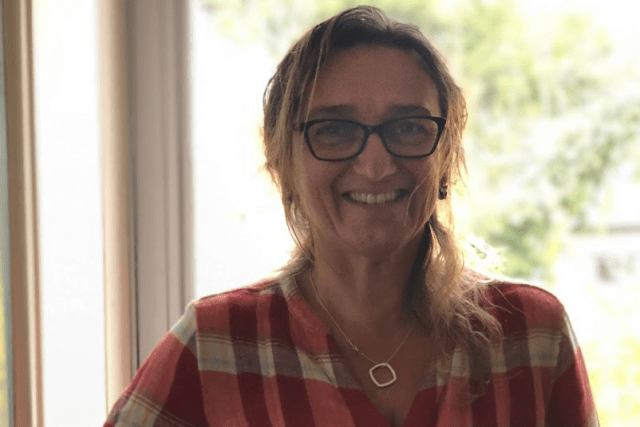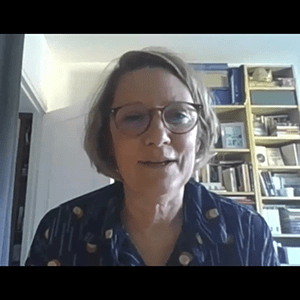By Chiara Cillerai, Ph.D.
Professor, Institute for Core Studies/First-Year Writing

St. John's Chiara Cillerai
My first-year writing students worked on a Global Online Learning Exchange (GOLE) project, “Writing and Thinking in the Globally Connected Digital World,” during the spring semester. The class worked with a group of students from ESIEE, an engineering school in Paris, France, who were taking an advanced course in English as a second language.
My two colleagues from ESIEE and I designed an assignment whose learning objectives were to develop research and analytical skills, to foster intercultural communication, and to invite students to grapple with the challenges that cultural and geographical differences cause when working collaboratively.

The six-hour difference between New York and Paris, rather than being an obstacle, made it possible for the two groups to meet synchronously for seven consecutive weeks since the two courses met at 10:30 a.m. and 4:30 p.m. respectively. Each meeting consisted of small group, student-led discussions or peer-review sessions of the different stages of the students’ research projects. The meeting took place in either WebEx breakout rooms or WhatsApp video chats.
Meeting each week and structuring each meeting around the various steps needed to complete the project provided students with the opportunity to engage in direct conversation—a main pedagogical goal for the French students—and to engage in the development of intercultural communication, which was at the foundation of the GOLE experience for all students involved. Since students had to discuss their research before each meeting, they were also required to find ways to communicate with each other in between the preset meetings, and thus manage the obstacles that the time difference and individual commitments created.

Because of its virtual nature and international features, one of the most important benefits of GOLE is the ability to give students an opportunity to engage in a study abroad-like experience when the physical experience abroad is impossible. This was obvious in the research projects the students completed and how they described their experience in their final reflections.
Learning how to collaborate and communicate with others and creating connections, however, were not the only benefits. The virtual exchange provided students with the self-reflective skills that help them understand others and themselves.
One of the French students described the challenges and surprises of communicating with native English-speaking partners: “For the first time in my life, I felt a new kind of frustration as I was speaking in English that I never felt in the academic setting I am used to. I felt like through my speech, I was unable to express my feelings. My team members were really understanding and caring and made things easy for me. So, this was not really a difficulty, but a way to discover more about oneself and wanting to change some things.”
In these words, the struggle to communicate in a nonnative language becomes the space where students can learn further about themselves and make use of that knowledge. This, I think, is one of the most important outcomes we should expect from virtual exchange programs.
Related News
Entangled Across Borders: Celebrating 100 Years of Quantum Physics Through a Global Classroom
In Spring 2025, I implemented the first iteration of the Global Online Learning Exchange (GOLE) in my Scientific Inquiry class at St. John’s University, a core class focused on how scientists make...
Grazie, Papa Francesco: Notes on the Passing of Pope Francis
Loreal is a junior at St. John’s University majoring in International Management with a minor in Social Justice : Theory and Practice in the Vincentian Tradition . She is also the President of the...
Snapshots: New Students from Around the World
The St. John’s community specializes in being a welcoming, friendly, accepting place and so we are excited to introduce you to some of our new international students. We hope these students will...
